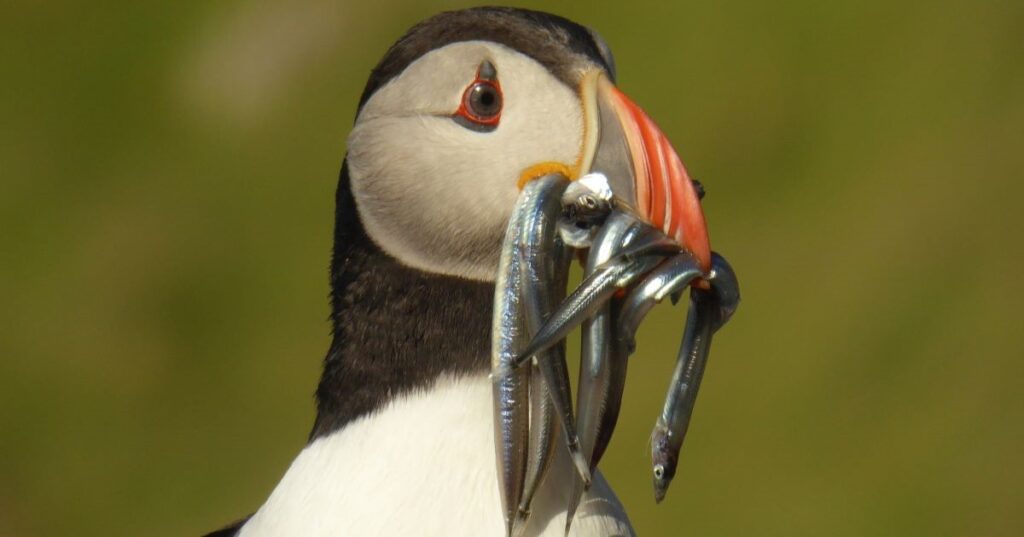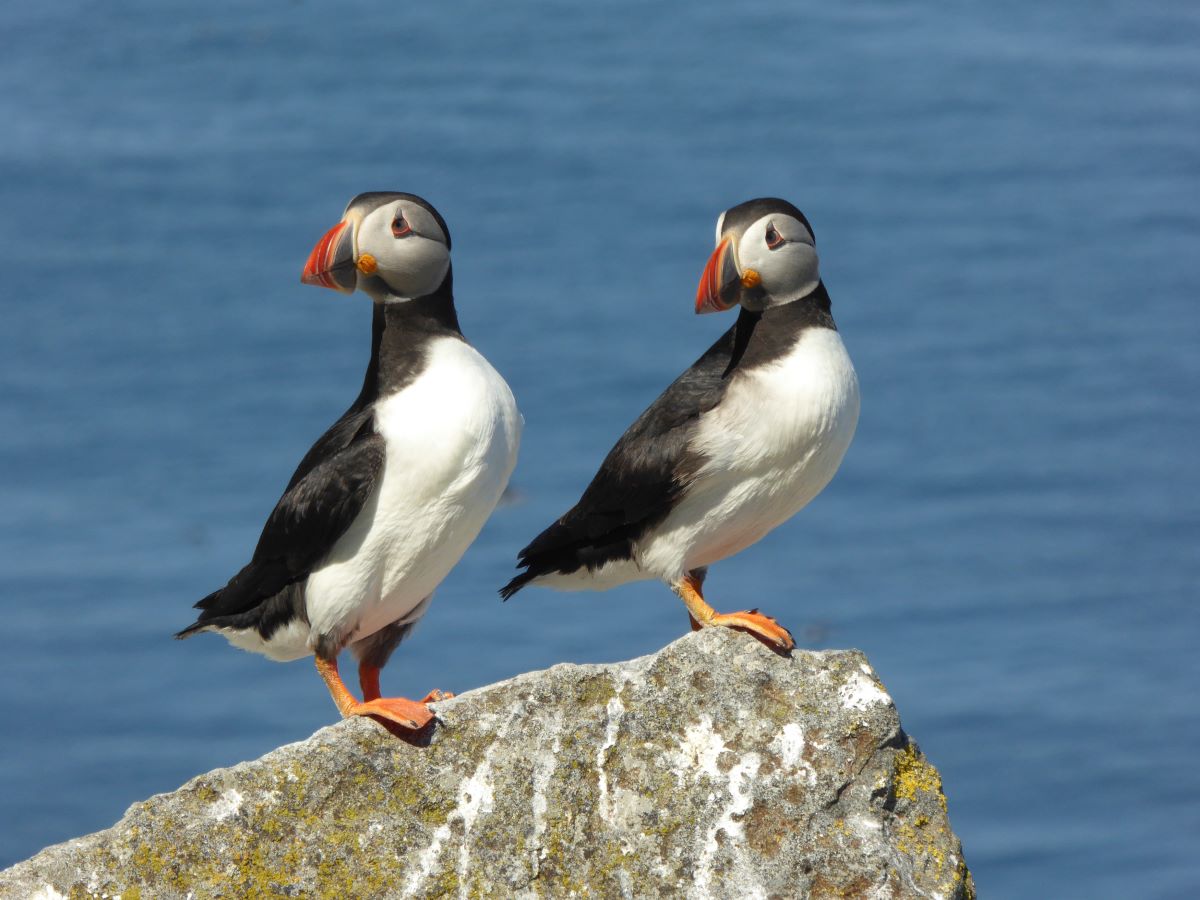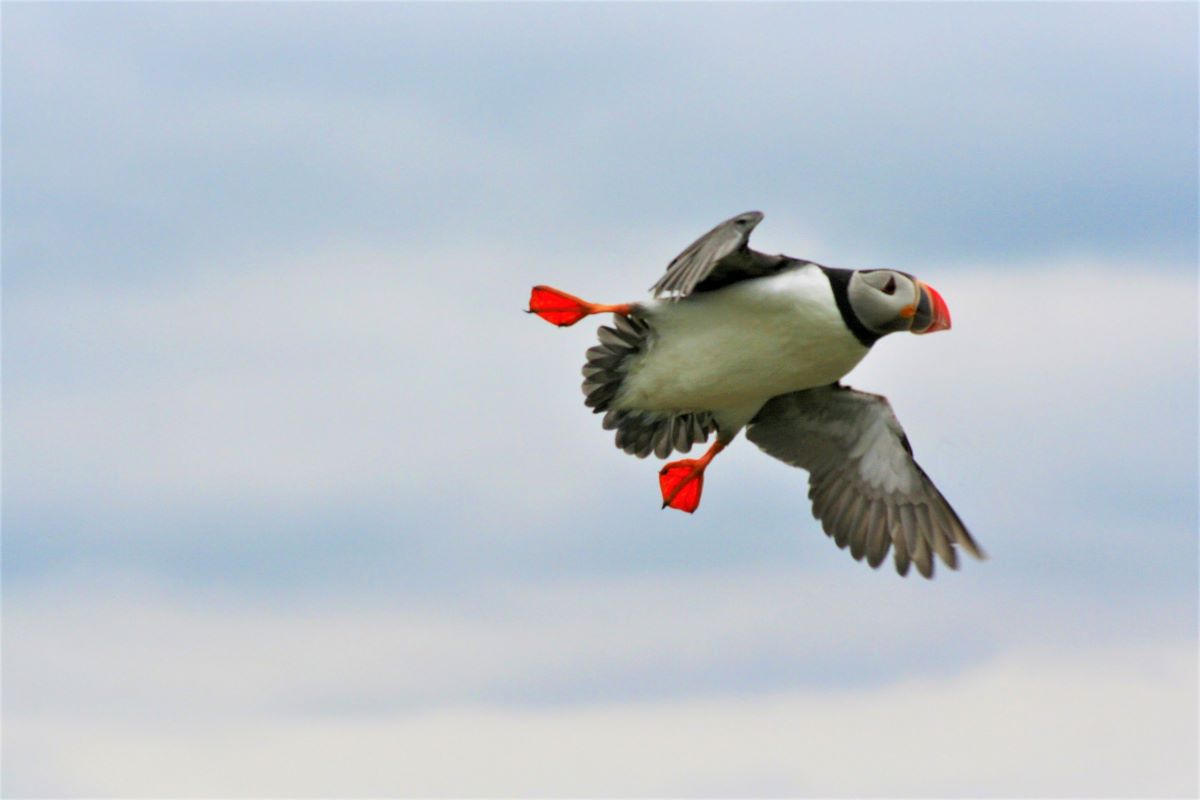
Puffins begin to arrive back to Shetland for the breeding season
They are affectionately known as the ‘clown of the seas’, with their multicolored bills and bright orange feet.
And now puffins have started to return to Scotland for the breeding season, the first beginning to arrive at Sumburgh Head nature reserve, in Shetland, in recent weeks.
Scotland is home to around three quarters of the UK’s Puffins. As one of our most threatened seabirds, the sight of these remarkable creatures returning is cause for celebration, signalling the start of a new nesting season.
The puffins will continue arriving throughout April, stay to raise their Pufflings (one egg is laid per Puffin) and then leave at the end of the summer.
They winter out at sea, and while it’s not known exactly where, it’s believed they are widely dispersed out in the North Sea and wider Atlantic Ocean.

The puffins will continue arriving throughout April. Credit Colin Wilkinson
The UK’s Puffin population has plummeted in recent years, partly because of a decline in sandeels.
These little fish are a main source of food for seabirds and their chicks, as well as some fish species and marine mammals, but their numbers have fallen due to the impacts of climate change and overfishing.
RSPB Scotland hope the Scottish Government’s closure of sandeel fisheries will help reverse this decline.
‘It’s always a joy to see Puffins return to our coastlines each spring,’ said Helen McLachlan, head of marine policy at RSPB Scotland.
‘While we welcome the recent sandeel fishery closures, it’s important to look at this within the context of broader concerns for seabirds.
‘Puffins and other seabirds continue to suffer serious declines in the face of threats such as climate change, invasive non-native predators, and human activities including offshore developments and fisheries.’

The UK’s Puffin population has plummeted in recent years. Credit Paul Turner.
The most recent seabird census, Seabirds Count, published in November 2023, suggests around 24% of puffins have been lost from across the UK since 2000.
It’s predicted that the UK’s Puffin population could plunge 90% by 2050 if global warming is left unchecked.
Read more Wildlife stories here.
Subscribe to read the latest issue of Scottish Field.
TAGS

